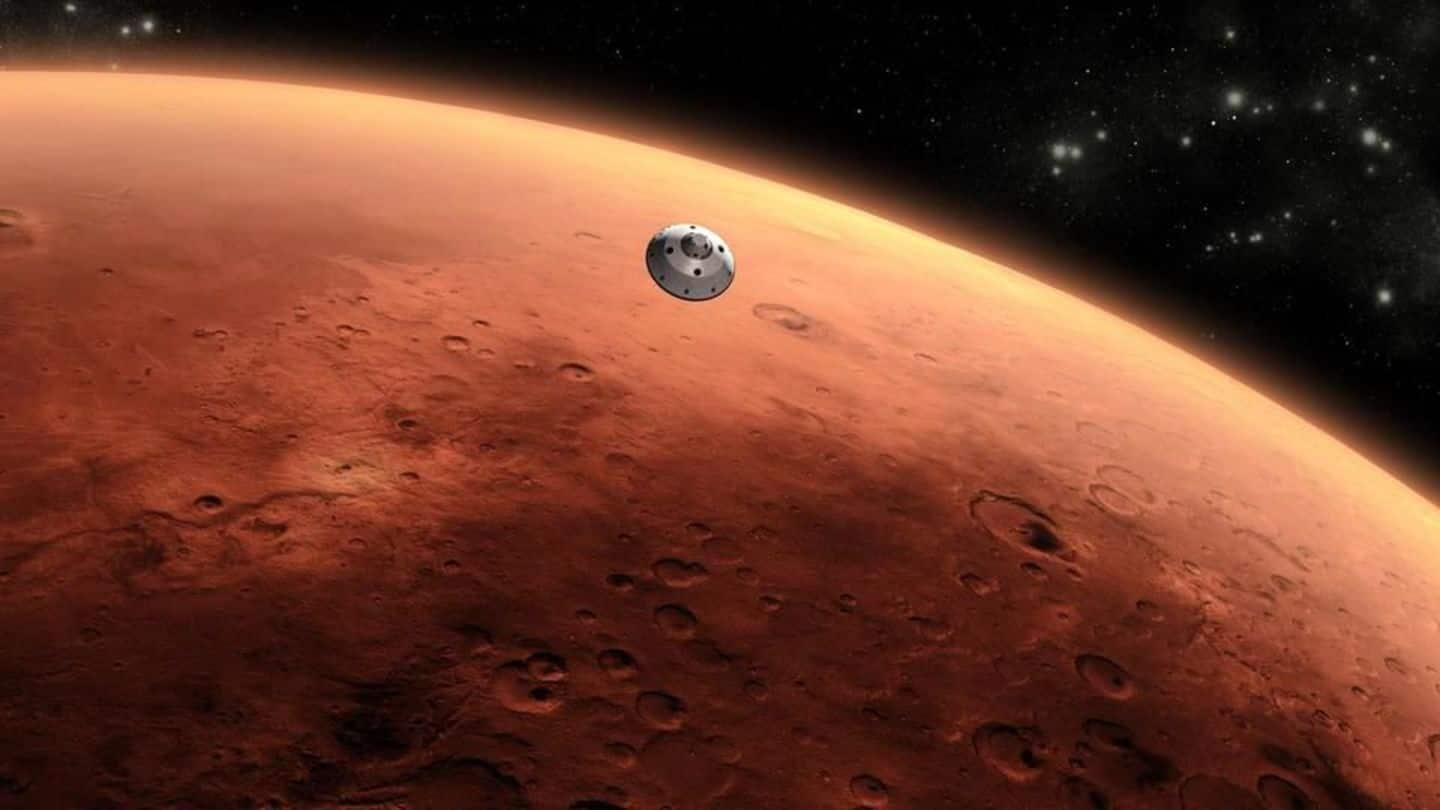
Massive global aurora triggered on Mars by strong solar storm
What's the story
An unexpectedly strong solar storm which occurred on 11th September has triggered a global aurora on Mars, doubling the radiation levels on the red planet. The aurora which was triggered by the storm was 25 times brighter than any aurora ever recorded by the MAVEN orbiter, which has been studying the Martian atmosphere's interaction with solar winds since 2014.
Quote
NASA's contribution towards understanding Mars' interaction with solar activity
"NASA's distributed set of science missions is in the right place to detect activity on the Sun and examine the effects of such solar events at Mars as never possible before," said Elsayed Talaat, a programme scientist at NASA headquarters.
Solar storm
The Earth escaped the brunt of the solar storm
Oddly enough, the solar storm which triggered the aurora occurred in conjunction with a spate of solar activity during what is normally a quiet period in the Sun's 11-year sunspot and solar storm-activity cycle. The event was detected on Earth too, but the blue planet escaped the brunt of the storm by virtue of being on the opposite side of the Sun from Mars.
Quote
The current solar cycle is a peculiar one
"The current solar cycle has been an odd one, with less activity than usual during the peak, and now we have this large event as we're approaching solar minimum," explained Sonal Jain, a member of the MAVEN's instrument team from the University of Colorado Boulder.
Radiation
The surface radiation spike lasted for over two days
The global aurora triggered by the storm raised the Martian surface's radiation levels to more than double of any previously measured amount. The spike in radiation was picked up by NASA's Curiosity Rover's Radiation Assessment Detector (RAD), which has been measuring Mars' surface radiation since 2012. The radiation spike lasted for more than two days.
Quote
Understanding such events is crucial for protecting astronauts
"To protect our astronauts on Mars in the future, we need to continue to provide this type of space weather monitoring there," said RAD Principal Investigator Don Hassler of the Southwest Research Institute, USA.
Findings
Findings will help humanity better plan for manned Mars missions
Curiosity's findings about Martian radiation resultant of the solar storm strengthen scientists current understanding about Mars' habitability. With several manned Mars missions planned for the near future, Curiosity's findings will help scientists plan for and devise ways to keep human crews safe from the impact of such unpredictable highly energetic solar events.